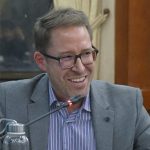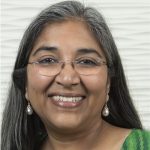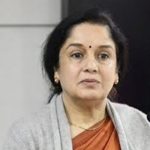Roadmap for Voluntary Carbon Markets
The demand for carbon credits could increase by a factor of 15 or more by 2030 and by a factor of up to 100 by 2050. Overall, the market for carbon credits could be worth upward of $50 billion in 2030 as estimated by recent report published by The McKinsey & Company
Overview
Post Paris agreement, many companies are pledging towards climate change by reducing their own greenhouse-gas emissions, yet many businesses are finding that they cannot fully eliminate their emissions, or even lessen them as quickly as they might like. For the companies committing to achieve net-zero emissions, which means removing as much greenhouse gas from the air as they put into it, use of carbon credits will be very important to offset emissions they can’t get rid of by other means.
India can acquire a major share of this opportunity and attract significant investment in voluntary carbon credit generation projects if the policy framework can be streamlined and a conducive operative environment can be created. Private investment flows in the carbon credit generation projects can not only help the country improve the local environment, but also put substantial money in the hands of Indian farmers, as the carbon capture opportunities in Indian agriculture are humongous.
NDC (Nationally Determined Contribution):
The Paris Agreement requires all ratifying Parties to communicate an NDC (Nationally Determined Contribution). NDCs are documents capturing the pledges made by each country, outlining their mitigation and adaptation goals, under the agreement. The first India NDC for the period 2021 to 2030 focuses on three priority areas:
- To reduce the emissions intensity of its GDP by 33-35 percent by 2030 from 2005 level.
- To achieve about 40 percent cumulative electric power installed capacity from non-fossil fuel-based energy resources by 2030 with the help of transfer of technology and low-cost international finance including from Green Climate Fund (GCF).
- To create an additional carbon sink of 2.5 to 3 billion tons of CO2 equivalent through additional forest and tree cover by 2030.
Agriculture plays a vital role in India’s economy and about 49% of the working population depends on agriculture as their principal means of livelihood, (MoA&FW, 2016). Agriculture, along with fisheries and forestry, is a large contributor to the Gross Domestic Product (GDP). With agriculture being a major contributor to the GDP as well as GHG emissions, this indicates that India might claim emission reductions or removals created in an agriculture project for accounting under its NDC target.
The issue of Double Counting:
Double claiming may occur when two different parties claim the same emission reduction / removal / mitigation outcome. In the context of the Paris Agreement, this can occur when
https://www.mckinsey.com/business-functions/sustainability/our-insights/a-blueprint-for-scaling-voluntary-carbon-markets-to-meet-the-climate-challenge#
a project’s host government claims the outcome towards its NDC and at the same time another country (for their own NDC) or an entity for a specific carbon reduction project claims it.
If the government of country from its national inventory does not exclude the benefits created by a specific carbon sequestration projects, this represents a double claiming situation. Carbon standards such as Gold Standard require a statement/clarification from the government proving such an adjustment. Due to environmental integrity, all carbon standards are very sensitive concerning this. The host country can forgo a claim to the emission reduction/removal outcome from a voluntary market project by applying a corresponding adjustment to the reporting of its progress towards achievement of its NDC, such that the level of effort required to meet its targets remains unaffected.
In India, The Ministry of Environment, Forest and Climate Change (MoEFCC) is the responsible entity for the post 2020 climate regime and is the key national climate change focal point working on preparing and submitting national communication reports including the NDC to UNFCCC and meeting its Convention obligations. MoEF has formed an Apex Committee for Implementation of Paris Agreement (AIPA) that shall exercise and perform the function as a National Authority to regulate carbon markets in India, under Article 6.2, Article 6.4 and Article 6.8 of the Paris Agreement.
While smallholder agriculture is NOT included in the current INCD, in the absence of a clear guidance on the carbon accounting, especially on the double counting, the private and international investment in carbon capture projects may slow down.
Objectives
- A clear guidance on the voluntary carbon markets in India that allows the private and international investors to claim ownership on the carbon credits generated through their investee projects focusing on smallholder agricultural projects.
- A system to issue NOC by government of India, for GHG emission reductions and/or removals from the privately funded projects from national inventory/NDC target.
- To develop a clear roadmap for sustainable voluntary carbon markets in India specifically around smallholder agriculture.
Expected Outputs
- Framework suggested for enhancing private sector investments and making carbon farming profitable and globally competitive
- Mechanisms for efficient use of carbon credits for agricultural development related activities
- Strategy/action plan prepared as a Road Map for strengthening public-private partnership to address carbon farming smallholder problems and for enhancing their income
Speakers

Dr. Anshuman
Associate Director, Water Resources Division
TERI
Moderator

Dr. Bjoern Ole Sander
Senior Climate Change Scientist
IRRI

R.P. Gupta
IAS, Secretary, Ministry of Environment, Forest & Climate Change
Government of India

Usha Barwale Zehr
Executive Director
GrowIndigo

Simon-Thorsten Wiebusch
COO
Bayer South Asia

Dr. S. Bhaskar
Assistant Director General (ADG), Natural Resources Management (NRM) Division
ICAR

Dr. Shailja Vaidya Gupta
Senior Adviser, Ministry of Science and Technology
Government of India

Joe Phelan
Director
WBCSD India
Agenda
|
15:25 – 15:30 |
Opening Remarks by EMCEE |
|
15:30 – 15:40 |
Keynote Address by R.P. Gupta, IAS, Secretary, Ministry of Environment, Forest & Climate Change, Government of India |
|
15:40 – 15.45 |
Special Address by Simon-Thorsten Wiebusch, COO, Bayer South Asia |
|
15:45 – 16:30 |
Round Table Discussion Key Discussion Points
Moderator: Dr. Anshuman, Associate Director, Water Resources Division, TERI Speakers
|
|
16.35 – 16:40 |
Closing Remarks by EMCEE |
To subscribe to The Times of India, The Economic Times, Navbharat Times, Mumbai Mirror, Pune Mirror, Ahmedabad Mirror, Maharashtra Times & Ei Samay —please click https://subscribe.timesgroup.com/subscription

